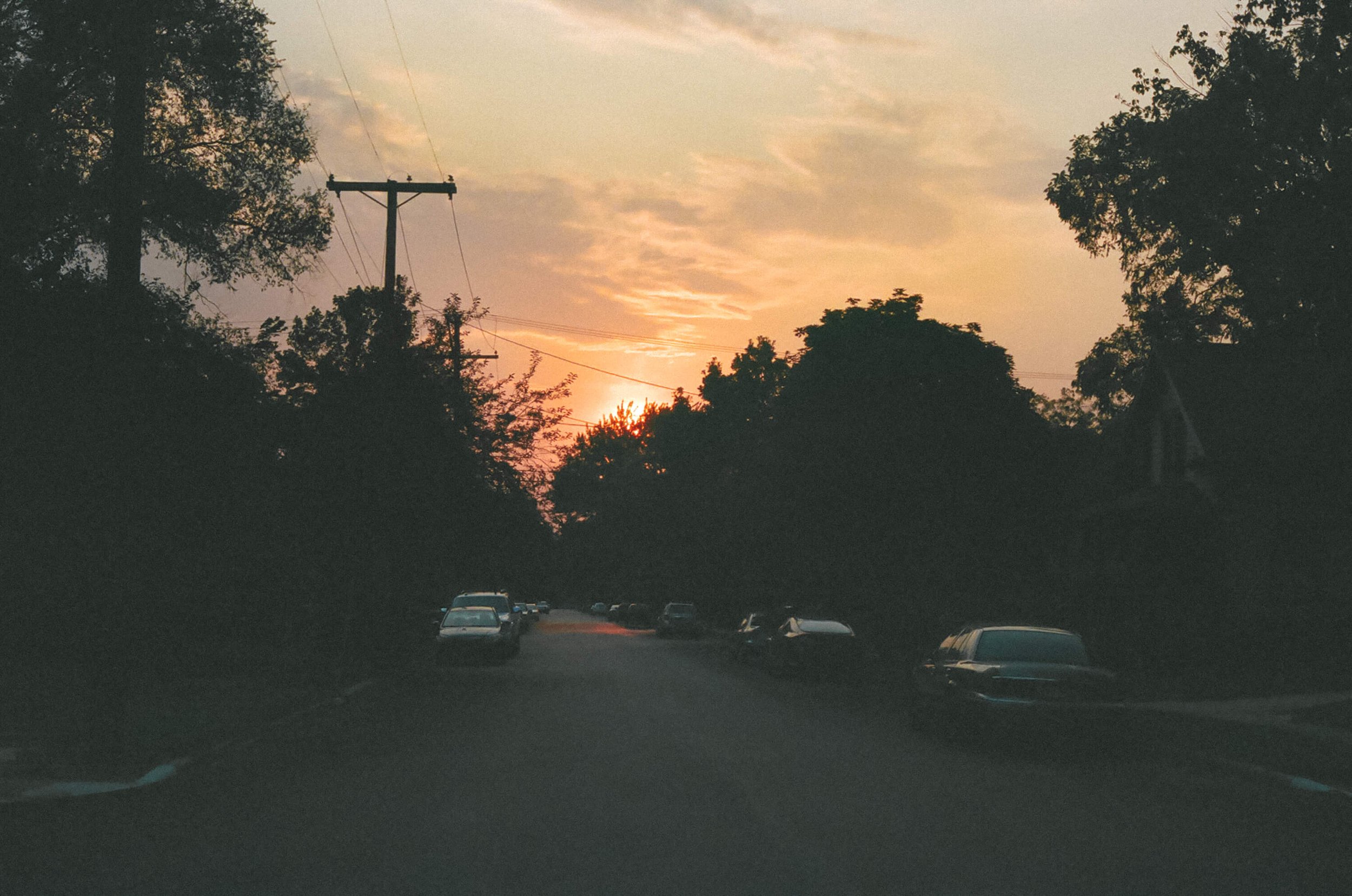Clover and Crimson
In the summer of 1969, I was ten years old, and I spent it doing two things: playing marbles and waiting for Sunday. I liked marbles because I was good at a game for a change, and even better liked the sound they made rattling together in my pocket as I ran home from the park where we played. I liked Sundays because of Crimson and Clover and drives to the lake.
We lived in a little white house on the East Bank. It was close enough to downtown so my father could walk to work. Work was night security at the businesses downtown, and then at the buildings where businesses used to be downtown. At eight he put on his work clothes and pulled his enormous ring of keys from the dresser drawer. He’d go from store to store, shutting off lights, checking alarms, keeping things under control. He came back in the night when we were all sleeping, and then stayed in bed past noon.
My mother did everything else, typing up the monthly invoices for him on our green and grey Remington, making reminder calls, taking down new accounts, and depositing all the cheques. Those came in the mail. Every day my father would say: “Did the postman come?” That meant was there any money. Sometimes there was, sometimes there wasn’t. I don’t think it ever mattered that much. It was just the three of us, and none of us cost a lot.
“Your father and I are different,” my mother would sigh sometimes. “But he’s not a drunk or a gambler.”
What he was was quiet. He didn’t say much when he was awake, and when he wasn’t we’d have to stay quiet to keep him that way. The same went for the kitchen radio. It wasn’t silent, exactly, but it may as well have been. My father had taped the dial down to 96.1, and the volume to low, the combination being that I couldn’t decipher a word or song, as if it were a twenty four hour broadcast of white noise.
The car radio, though, was my mother’s domain. My dad could drive, but he didn’t, and he didn’t care much if mom took the car. The car was a 1960 Ford Ranch Wagon. It only had two doors, both paneled with wood. “You know, those fancy fast cars only have two doors too,” my mother would say, implying that ours wasn’t so far away. I don’t think she cared what the car was. As long as there was a radio. When dad wasn’t in the car, she could put on whatever she wanted.
What she wanted was WLS-AM 890, straight out of Streeterville, Chicago. If dad had the kitchen dial nailed to WSBT, mom had the car’s nailed to WLS. There wasn’t enough time for prolonged trips during the week, but on Sundays after church she would point the Wagon’s nose north and head out of town. That summer she started taking me with her.
We always left a few minutes before noon, just before the station’s ID jingle came over the air, a woman cheerily singing, “Lake-shore drive. Northside, westside, south-side…in Chi-cago. It’s…double u, ellllll, essssss.” I don’t think mom knew the westside from the eastside in Chicago. But she knew her WLS from WSBT. When the radio was on, she didn’t just hear what was playing; she listened. She would light up a cigarette on the cigarette lighter as we hurtled up Portage through the woods and towards the state line, holding her cigarette out the window and forgetting to puff on it until it had burned down to her fingers. She was listening so closely, that, one time, I picked up the lighter coil and touched my hand to the still-glowing coil by mistake. I gave a yelp. She didn’t notice.
From Simon and Garfunkel, to Paul Revere and the Raiders, to the Rolling Stones and The Byrds, mom knew all about every band that came on, forgetting nothing from her weekly listening sessions in which the disc jockeys would offer the occasional commentary. She liked them all, and sang the words too with a whispered urgency that seemed even more reverent than the voice in which she sang hymns. She loved Tommy James and the Shondells the most. I think it was because they were from Niles, Michigan, right down the road from where we lived, but it was much because that year “Crimson and Clover” hit no. 1 on the charts and stayed there. It stayed on WLS’s airwaves too.
“You know, they scammed Tommy into getting an early copy of that song,” she’d say, referring to him like an old friend. “He played them a rough recording last year, and they stole it without telling him, and played it on air. But he can’t be too mad. Top of the charts for him.”
One day at the end of that summer, we were cruising along a country road somewhere halfway between South Bend and the beach when Crimson and Clover came on. As far as I could tell, the song wasn’t about anything at all. Not that I cared, since I didn’t get tired of hearing the warbling guitars and smooth rhymes. But I couldn’t have told you what crimson and clover had to do with each other, or how they could be “over and over.”
Not mom though. She was convinced that “Tommy” had written the song while making the very same drive we were making. When it came on that day, we were passing a lush green field in which a few solitary cows stood chewing.
“Look!” she pointed, shouting over the music. “That field is all clover. I’m sure Tommy wrote this on this drive!”
I smiled and nodded, looking at the blooms and seeing they were indeed clover. Mom turned up the radio at the song’s bridge and drove faster. She never bothered with curls, even on Sunday, and her hair was whipping around in her own wind. Her eyes were fixed on the road.
When I asked, “Where’s the crimson?” she didn’t respond. We were coming up upon an old farm truck, rusting and retching down the road, and mom hit the gas and passed him, the old man driving looking out in bewilderment as this station wagon flew by him, the radio blaring, a woman behind the wheel, and a boy in the passenger seat whose head barely rose about the dash.
Where was the crimson? There was nothing red as far as I could see, so either Tommy was thinking of different clover or the song wasn’t about driving around Michiana at all. Could it have been in fall, when the trees flamed from green to gold and red in a few glorious weeks? But then the clover would be long gone. I couldn’t say. Mom was still listening.
We got to the beach and scrambled the ten minutes over the dunes. I can’t remember in what order we did what, whether we swam, or played cards on a blanket, or walked along the sand, or just sat staring out at the water as the sun sank, pulling the day’s heat down with it. But I do remember that we stayed late that evening, long past when most had packed up their umbrellas and coolers and returned to their cars, stayed sitting as if we could keep the day from ending by refusing to leave. I followed mom back up the dunes, my feet sinking in the still-warm sand. At the top of the highest hill, she turned around and looked at me, raised a hand, and pointed out at the lake.
The sun was half-submerged below the horizon, but what remained was glowing a deep red and sending a ruby path all the way to the shore. The water was glassy, a perfect mirror, and after a moment of staring I couldn’t tell where the water ended and the sky began.
“There!” mom whispered. “There’s the crimson.”


